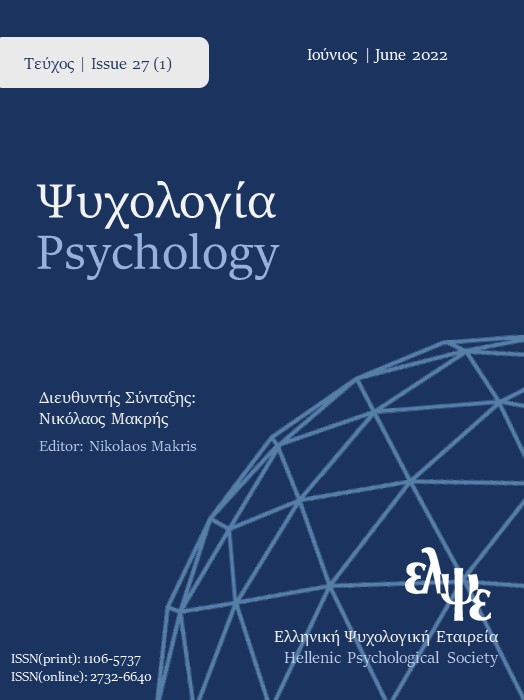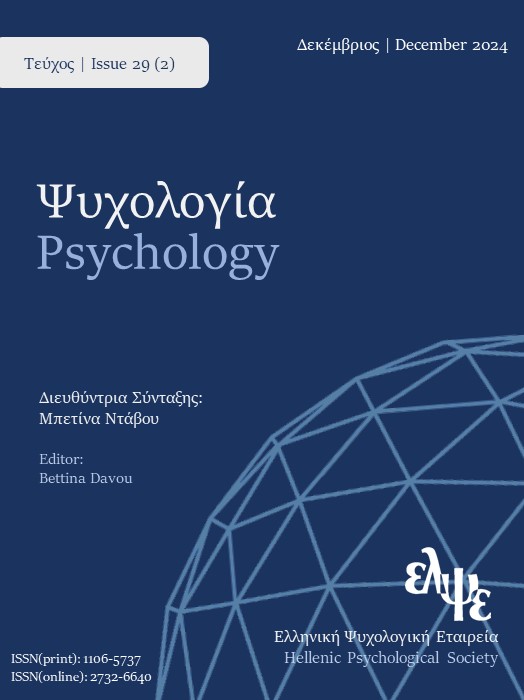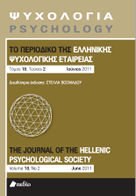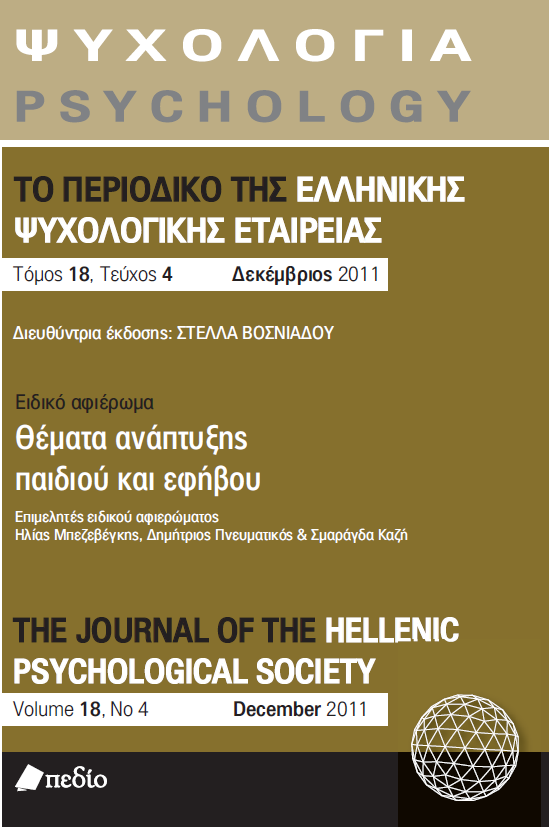Διδακτικές αναλογίες και εννοιολογική αλλαγή: ο ρόλος της προϋπάρχουσας γνώσης στην κατανόηση αντι-διαισθητικών επιστημονικών εξηγήσεων μέσα από τη χρήση διδακτικών αναλογιών

Περίληψη
Προηγούμενες έρευνες έδειξαν ότι οι αναλογίες που χρησιμοποιούνται σε κείμενα για την διδασκαλία αντι-διαισθητικών επιστημονικών εξηγήσεων, που έρχονται δηλαδή σε πλήρη αντίθεση με τα αισθητηριακά δεδομένα, μπορούν να έχουν θετικές επιδράσεις στη μάθηση. Υποστηρίχθηκε ότι υπάρχει ισχυρή συσχέτιση ανάμεσα στην προϋπάρχουσα γνώση των μαθητών και τα οφέλη που προκύπτουν από τις αναλογίες, αφού συμμετέχοντες με προχωρημένη προϋπάρχουσα γνώση κατανόησαν καλύτερα τις αναλογίες και στον μεταέλεγχο έδωσαν απαντήσεις που ήταν πιο κοντά στην επιστημονική. Παραδόξως όμως, στις έρευνες αυτές υπήρξαν συμμετέχοντες με αφελή προϋπάρχουσα γνώση, που κατανόησαν τις αναλογίες, αλλά και συμμετέχοντες που ενώ κατανόησαν τις αναλογίες, δεν βελτίωσαν τις εξηγήσεις τους στον μεταέλεγχο. Τα ευρήματα αυτά οδήγησαν στη διεξαγωγή έρευνας που στόχο είχε να διερευνήσει περαιτέρω μέσω συνεντεύξεων τη σχέση μεταξύ προϋπάρχουσας γνώσης, κατανόησης της αναλογίας και αποδοχής της επιστημονικής εξήγησης, όταν αυτή δίνεται μέσα από κείμενα που είτε χρησιμοποιούν είτε όχι διδακτικές αναλογίες. Στην έρευνα συμμετείχαν μαθητές της 3ης και 5ης δημοτικού. Χρησιμοποιήσαμε ένα ανοικτού τύπου ερωτηματολόγιο για τη διερεύνηση των γνώσεων των μαθητών σχετικά με τη Γη και την εναλλαγή μέρας/νύχτας και δύο επεξηγηματικά κείμενα. Το ένα εξηγούσε την εναλλαγή μέρας/νύχτας χρησιμοποιώντας μία αναλογία, ενώ το άλλο έδινε την ίδια εξήγηση χωρίς αναλογία. Τα αποτελέσματα έδειξαν ότι για την κατανόηση της επιστημονικής εξήγησης και της αναλογίας προαπαιτείται η κατανόηση της έννοιας της Γης ως ένα σφαιρικό αστρονομικό σώμα που περιλαμβάνει προχωρημένες οντολογικές και αναπαραστασιακές πεποιθήσεις σχετικά με τη Γη. Επιπλέον φάνηκε ότι, ακόμη και αν γίνει κατανοητή η επιστημονική εξήγηση για την εναλλαγή μέρας/νύχτας -κάτι το οποίο διευκολύνεται με τη χρήση διδακτικών αναλογιών- είναι εξαιρετικά δύσκολο για τους μαθητές να αποδεκτούν μία επιστημονική αντι-διαισθητική εξήγηση, εφόσον οι επιστημολογικές τους πεποιθήσεις δεν είναι προωθημένες, ώστε να τους επιτρέπουν να κατανοήσουν ότι τα πράγματα δεν είναι πάντα όπως τα βλέπουμε με τα μάτια μας. Ως εκ τούτου φαίνεται να απαιτείται η χρήση επιπλέον διδακτικών μεθόδων που θα μπορέσουν να ενισχύσουν τα οφέλη των αναλογιών στη μάθηση.
Λεπτομέρειες άρθρου
- Πώς να δημιουργήσετε Αναφορές
-
Σκοπελίτη Ε., & Βοσνιάδου Σ. (2022). Διδακτικές αναλογίες και εννοιολογική αλλαγή: ο ρόλος της προϋπάρχουσας γνώσης στην κατανόηση αντι-διαισθητικών επιστημονικών εξηγήσεων μέσα από τη χρήση διδακτικών αναλογιών. Ψυχολογία: το περιοδικό της Ελληνικής Ψυχολογικής Εταιρείας, 27(1), 66–85. https://doi.org/10.12681/psyhps.30684
- Ενότητα
- ΕΙΔΙΚΟ ΑΦΙΕΡΩΜΑ

Αυτή η εργασία είναι αδειοδοτημένη υπό το Creative Commons Attribution-ShareAlike 4.0 International License.
Το περιοδικό ΨΥΧΟΛΟΓΙΑ έχει υιοθετήσει μία πολιτική Platinum open-access. Τα έξοδα υποβολής, επεξεργασίας ή δημοσίευσης των εργασιών καλύπτονται από την Ελληνική Ψυχολογική Εταιρεία. Τα πνευματικά δικαιώματα των δημοσιευμένων εργασιών προστατεύονται από την άδεια 'Creative Commons Attribution-ShareAlike 4.0 International'. Οι Συγγραφείς διατηρούν τα Πνευματικά Δικαιώματα και χορηγούν στο περιοδικό το δικαίωμα της πρώτης δημοσίευσης. Η άδεια αυτή επιτρέπει σε τρίτους, να χρησιμοποιούν την εργασία σε οποιαδήποτε μορφή, με την προϋπόθεση της διατήρησης των διατυπώσεων που προβλέπονται στην άδεια σχετικά με την αναφορά στον αρχικό δημιουργό και την αρχική δημοσίευση στο περιοδικό ΨΥΧΟΛΟΓΙΑ. Επιπλέον, κάθε διανομή της εργασίας οφείλει να γίνεται με τους ίδιους όρους διανομής, δηλαδή με την ίδια άδεια Creative Commons.








